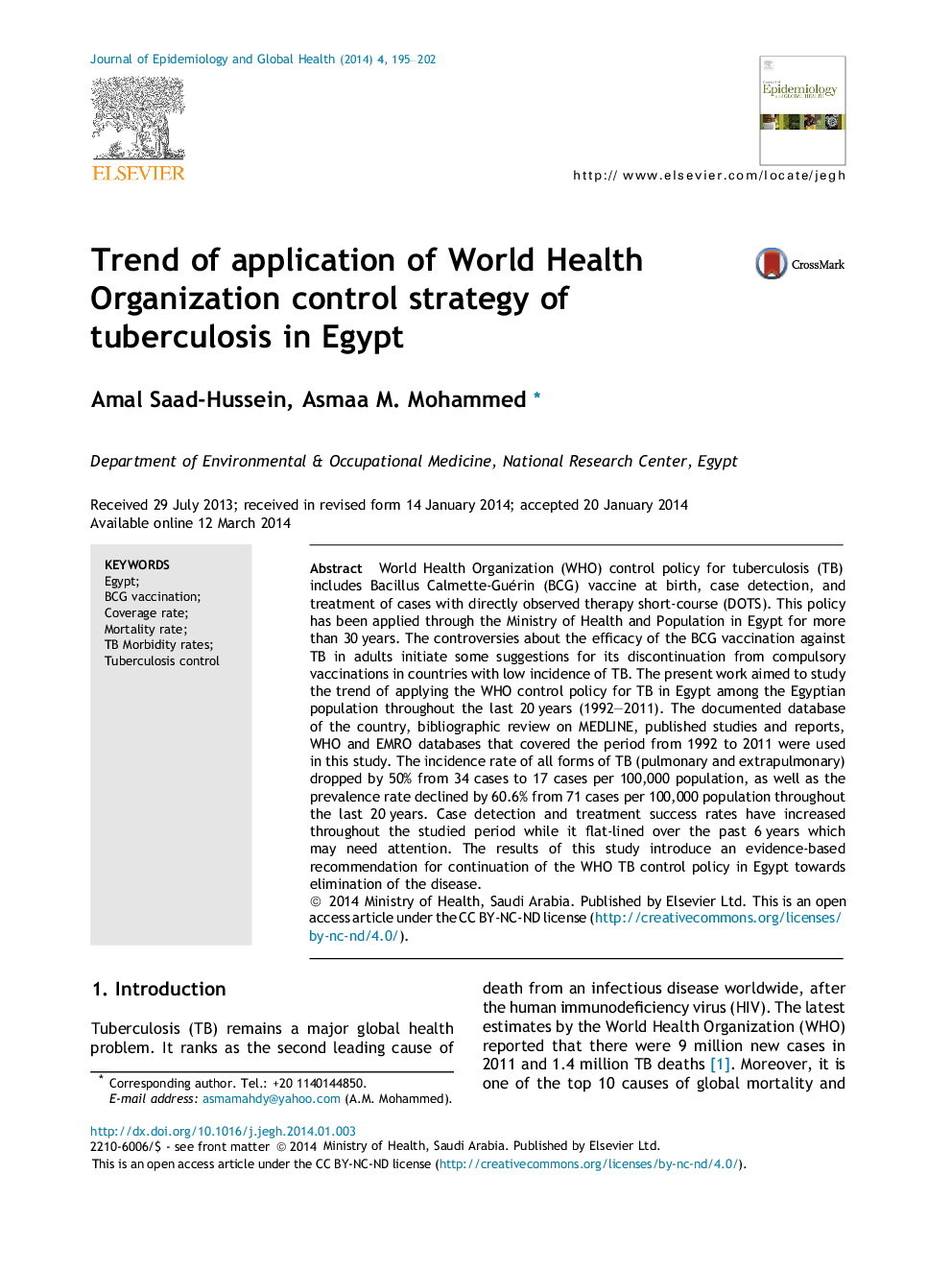| Article ID | Journal | Published Year | Pages | File Type |
|---|---|---|---|---|
| 3327607 | Journal of Epidemiology and Global Health | 2014 | 8 Pages |
World Health Organization (WHO) control policy for tuberculosis (TB) includes Bacillus Calmette-Guérin (BCG) vaccine at birth, case detection, and treatment of cases with directly observed therapy short-course (DOTS). This policy has been applied through the Ministry of Health and Population in Egypt for more than 30 years. The controversies about the efficacy of the BCG vaccination against TB in adults initiate some suggestions for its discontinuation from compulsory vaccinations in countries with low incidence of TB. The present work aimed to study the trend of applying the WHO control policy for TB in Egypt among the Egyptian population throughout the last 20 years (1992–2011). The documented database of the country, bibliographic review on MEDLINE, published studies and reports, WHO and EMRO databases that covered the period from 1992 to 2011 were used in this study. The incidence rate of all forms of TB (pulmonary and extrapulmonary) dropped by 50% from 34 cases to 17 cases per 100,000 population, as well as the prevalence rate declined by 60.6% from 71 cases per 100,000 population throughout the last 20 years. Case detection and treatment success rates have increased throughout the studied period while it flat-lined over the past 6 years which may need attention. The results of this study introduce an evidence-based recommendation for continuation of the WHO TB control policy in Egypt towards elimination of the disease.
